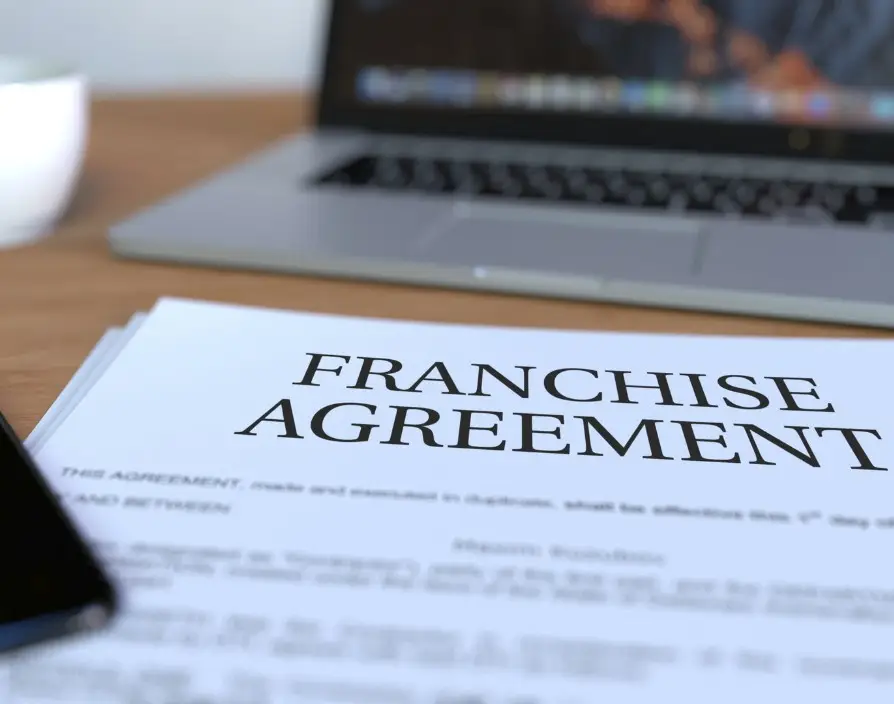Franchise agreements can provide a range of benefits for both franchisees and franchisors. A franchisee can benefit from the franchisor’s established brand and business model leading to the potential for higher sales, while a franchisor can expand its business with less capital and lower risk.
A report commissioned by the International Franchise Association in 2021 indicated that, on average, franchises report sales are 1.8 times as large as non-franchise businesses. Additionally, a study conducted by the British Franchising Association and NatWest in 2018 found that failure rates for franchises were very low, with fewer than 1% per year closing due to commercial failure. The franchise model when done well is a resilient model often outperforming other sectors in difficult economic times.
That being said, there may come a time where the franchise agreement is no longer beneficial to one or both parties, leading to that party exploring their options for the termination of the franchise agreement. A typical franchise agreement will not provide a franchisee with a contractual right to terminate the agreement early. Instead the usual exit route is through a sale of the franchised business with the franchisor’s consent. But sometimes expediency is key and waiting for a potential sale that may not materialise is not an attractive option. Why might a franchisor and franchisee want to go their separate ways and not wait?
Breach of the franchise agreement
The franchisee may wish to terminate the agreement where the franchisor is in material breach. Usually a franchise agreement will not grant the franchisee a right to terminate for the franchisor’s material breach however whether it is stated or not the franchisee will have a right at common law (case law) to terminate if the franchisor is in serious material breach. This has to be a breach that goes to the heart of the contract. This can be a high threshold to meet and the breach would need to be such that it seriously affected the franchisee’s ability to trade or operate. Equally, the franchisor may wish to terminate where the franchisee is in material breach of its contractual obligations. For example, where the franchisee has failed to operate the franchise in accordance with agreement or has failed to pay sums due to the franchisor.
Termination of the agreement as a result of the other party’s material breach usually requires notice to be served on the party in default. If the breach is capable of remedy then it is usual to provide the defaulting party an opportunity to remedy the breach. To ensure that any such notice is valid, any provisions set out in the agreement which deals with how notices must be served should be strictly followed.
Terminating the agreement unilaterally should not be undertaken lightly and parties would be well-advised to proceed with caution and with the benefit of legal advice as seeking to terminate without a legal basis may lead to a wrongful termination claim. The party bringing such a claim would likely seek damages equivalent to the value of the Agreement for the remainder of its term less an allowance for the cost savings in not having to perform its obligations. The agreement may even provide that the franchisee has to pay a “liquidated damages sum” (a fixed amount of money that the franchise agreement states will be payable in certain named circumstances) for terminating early.
Derogation from grant
Certain types of breaches may also lend themselves to an argument that they substantially deprive the franchisee of the benefit of the agreement. This is often referred to as a derogation of grant from the franchise. This additional argument tends to arise where the franchisor unilaterally make substantial changes to the franchise agreement which leaves the franchisee disadvantaged. Examples can include where the franchisor sets up an online business which effectively cannibalises or competes with the franchisee’s own business. Often the contractual position here is less clear cut but it is clear that the franchisor’s behaviour amounts to a potential abuse of the bargaining power in the relationship.
Insolvency
Franchise agreements typically include provisions which entitle the franchisor to terminate with immediate effect should a franchisee become insolvent. Franchisees, on the other hand, might be surprised to learn that their franchise agreement does not typically grant them an equivalent right. If a franchisor is insolvent then it really depends on the circumstances as to whether a franchisee can terminate. If the franchisor is able to continue trading then it is likely that the insolvency itself may not amount to a material enough breach to entitle the franchisee to terminate and often franchise agreements get assigned to a purchaser of the insolvent franchisor’s assets. As most franchise agreements contain a clause permitting franchisors to transfer the franchise agreements without consent this can leave a franchisee with little choice.
Expiry
Franchise agreements typically last for a period of 5 years, with the franchisee having the option of renewing for a further term provided that they have met certain conditions (for example, they have not committed any unremedied breaches of the agreement). In order to ensure that a franchisee is able to realise the value of their investment, where a franchisee does not wish to renew then it should make plans in sufficient time to look to sell the business.
Mutually agreed termination
In circumstances where the franchise business is struggling, both parties may come to the realisation that a mutually agreed termination is best to protect their respective interests. This is never a given though and will usually involve a termination agreement that sets out the terms on which the agreement is going to be brought to an end.
The starting point will involve a careful review of the terms of the franchise agreement as each agreement will be different. Ideally legal advice should be sought early on and throughout the process to ensure that a party considering terminating a franchise agreement understands its legal position and does not act in a way that might prejudice its interests.
Dispute resolution
Given that the process of termination can be costly, particularly if contested, it is usually worth exploring alternative ways of settling any disputes. If direct negotiation is unsuccessful, there may be a dispute resolution procedure set out in the franchise agreement, perhaps involving mediation or arbitration. Even where it does not the parties will often agree to mediate to reduce costs, or arbitrate for the benefits of privacy and procedural flexibility rather than litigate. The British Franchise Agreement has a mediation scheme.
Mediation is a structured negotiation between the parties in which the mediator (whose time is usually paid for equally by the parties) is an independent third party who facilitates the negotiations. The mediator does not make a binding decision – they won’t say who is right and who is wrong, but they can support the parties in coming up with a solution that they can all live with.
Arbitration is a contractually agreed method of resolving disputes. It is an alternative to litigation and if parties have agreed to arbitrate, they will generally not be able to go to court to resolve any dispute which may arise. The arbitrator makes an award that is final and binding and the award is enforceable. The arbitral process can be much more flexible than court proceedings and it can be quicker. As long as the parties agree, they can choose how the arbitration will work – who the arbitrators should be and what procedural rules should apply. It is often possible to appoint an arbitrator with relevant sector experience. Arbitration is private and confidential – for franchisors this is an advantage as the franchise disputes that end up in the courts often attract a lot of potentially undesirably press and trade coverage. There are, however, more limited rights of appeal from an arbitral award than a court judgment.
Successful franchises benefit both parties and often franchisors/franchisees with good lines of communication will be able to resolve the majority of issues which crop up during the term of the agreement. Where compromise is not possible and termination becomes necessary, parties should seek legal advice without delay to try to make the parting less painful than it may otherwise be.

Elizabeth Butler
Elizabeth advises clients on a wide range of contentious work including disputes arising from franchising arrangements, contractual disputes, shareholder disputes and professional negligence claims. She is a member of the franchising group at Stevens & Bolton and of the British Franchising Association.

































